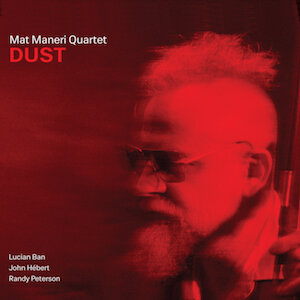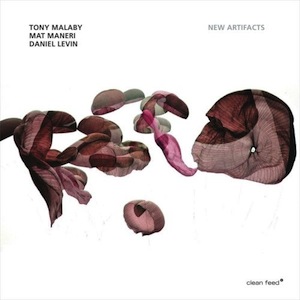Label: Sunnyside Records, 2023
Personnel - Mat Maneri: viola; Lucian Ban: piano; John Hébert: bass; Randy Peterson: drums.
The second consecutive outing of violist Mat Maneri in quartet with Romanian-born pianist and regular collaborator Lucian Ban, bassist John Hébert, and drummer Randy Peterson is called Ash, and continues the hauntingly atmospheric explorations started with the previous, Dust (Sunnyside, 2019).
The minimal architecture of the pieces encompasses slow, circumspect developments that might seem understated in terms of individual improvisation but are strong as a collective effort. It’s precisely with a collective improvisation, “Ash”, that they start off the proceedings. There’s crawling viola lines emerging sinuously from dark subterfuges and places of mystery. The search is endless with the body of the bass and flickering cymbal energies aligning forces for a strange coalition with the congruous piano, whose harmonic texture glues everything together.
The microtonal restraint of Maneri darts around on “Moon”, a piece based on a melody by violist James Bergin whose sounds are somber and sleep-inducing. Its floating detachment doesn’t seem to take us anywhere in concrete but ends with more percussive flavor than it started. Also wandering in rubato style, “Earth”, which is based on a melody by Mat’s father Joe Maneri, joins avant-garde jazz and modern classical influence, reserving a space for Peterson’s adroit drum flow by the end. Another classical-influenced piece is “Brahms”, which revisits the Romantic Classicism of the German composer in the title with beautiful melodic suspensions and resolutions that sweep through a richly brushed rhythmic tapestry.
Overtonal balance is achieved with Ban’s “Glimmer”, whose discernible main statement, delivered in parallel by viola and piano, is a reference point. The group distills their tonal language into an ample musical space, and their interplay - especially between Maneri and Ban - stands out. The quartet finalizes with “Cold World Lullaby”, a picturesque folk-imbued number carried with a slight sense of hopelessness and Eastern tinges. This last polytonal piece was based on melodies by American film music composer Sol Kaplan, Romanian traditional Lume, and a Sicilian lullaby.
Once the mood of a piece is established, shifts and metamorphoses are infrequent. Yet, the warp knitting, angular measurements and gloomy harmonic impressions of this music examine something deeper. We could say this is the sadcore branch of jazz.
Favorite Tracks:
01 - Ash ► 05 - Glimmer ► 07 - Cold World Lullaby














